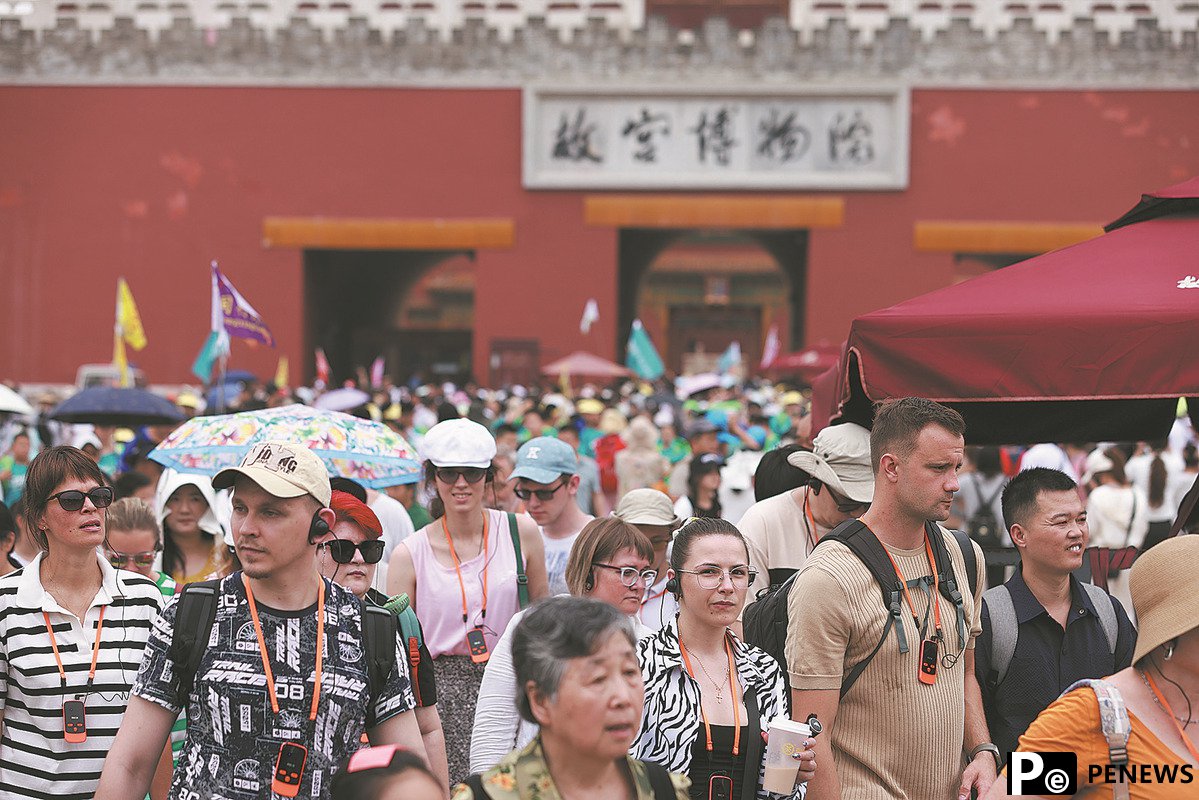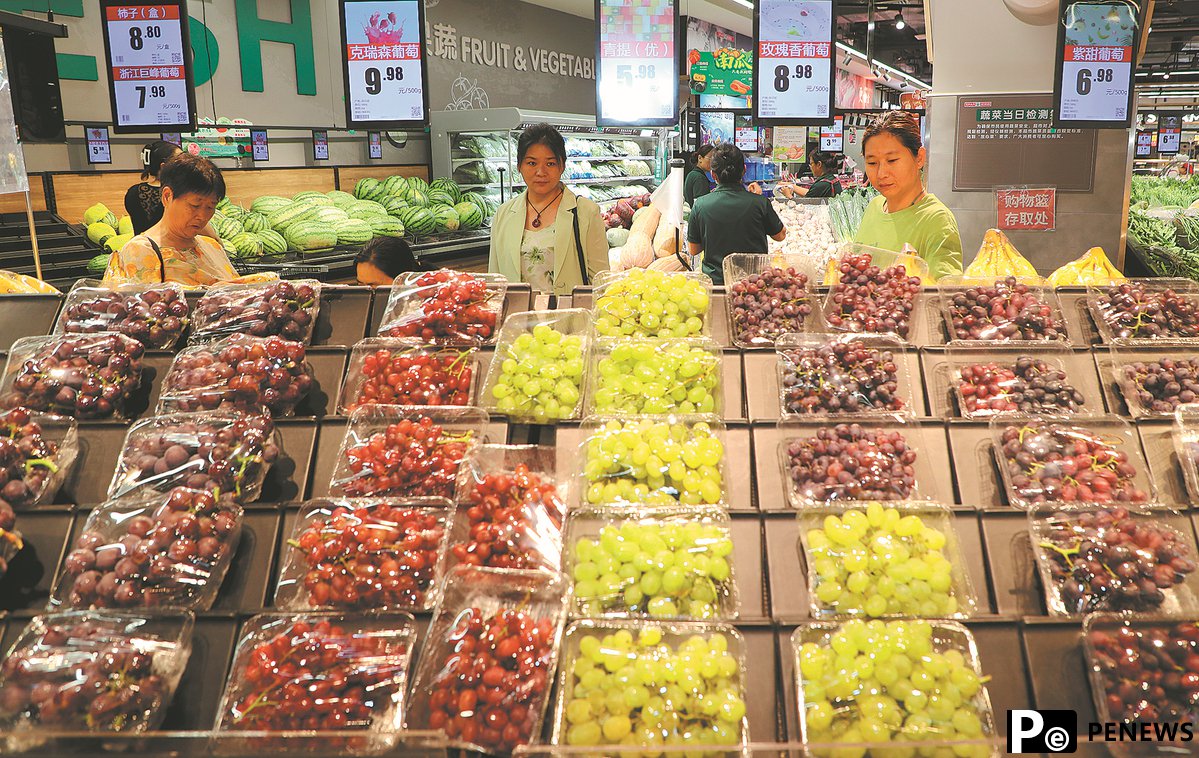Home>>
Q&A on China reforms: When the rubber meets the road -- Decoding new quality productive forcesBy Guo Xiaoyu (Xinhua) 14:59, August 20, 2024
BEIJING, Aug. 20 (Xinhua) -- This summer, fruit fans in Singapore and the United Arab Emirates are in for a treat as they have easier access to yangmei, also known as waxberries. These small, crimson and sweet fruits are native to China and predominantly grown in Zhejiang Province.
In the past, despite its popularity in China, yangmei has not been widely exported due to its delicate and perishable nature. However, recent advancements in Zhejiang's yangmei cultivation industry, which boasts a history of over 1,600 years, have now made it possible to export this beloved seasonal fruit on a larger scale.
"By using electromagnetic waves to rearrange water molecules, we can lower the icing point to minus five degrees Celsius," said Ying Jiaoming, a chief technician at an agricultural technology firm in Xianju County. "This technology enables us to keep the storage temperatures below zero without actually freezing the fruits."
According to Ying, the technology has successfully extended the storage life of yangmei from seven days to over a month, thereby, helping the local specialty reach distant markets. From 2021 to 2023, Xianju's yangmei exports nearly tripled.
The fruit's tech-fueled global journey exemplifies China's efforts to foster new quality productive forces -- instead of discarding traditional industries, the country is looking to revitalize them with technological innovations tailored to local development needs.
Despite arising from sci-tech innovation, the concept of new quality productive forces extends beyond science and technology. Nicholas Welch, a regular columnist with the ChinaTalk newsletter, wrote recently that the concept may sound esoteric, but its connotation is simple: as a country's technology advances, its social and economic systems need to evolve accordingly.
That much-expected evolution is part of China's newly released reform blueprint. To cement reform consensus, a guidebook of articles by senior officials was published this summer, offering authoritative insights into the country's efforts to deepen reforms comprehensively.
Using the book as a reference, Xinhua delves into new quality productive forces, as well as the wide-ranging reforms the concept has sparked.
WHY DOES CHINA DEVELOP NEW QUALITY PRODUCTIVE FORCE?
For the Chinese leadership, developing new quality productive forces can address a series of challenges from home and abroad as the country pursues modernization.
The Chinese economy has made strides in recent years, but its growth remains unbalanced and uneven, with insufficient innovation capabilities and a widening income gap, says Vice Premier He Lifeng in his recent article incorporated in the book.
As resource and environmental pressures mount, traditional production methods and growth models are becoming increasingly outdated. Against this backdrop, China must upgrade its productive forces through technological innovation to create new growth momentum.
Meanwhile, the world is undergoing a new wave of technological and industrial revolutions. China is hoping to gain a competitive edge in advanced industries such as IT, biotech and new energy.
In the vice premier's words, the importance of cultivating new quality productive forces must be evaluated from a holistic and historical perspective. The country must seize every opportunity presented by these technological and industrial revolutions to ignite a surge in productivity.
In fact, analysts have noted that translating technological advances into enhanced productivity is the country's most pressing task at present.
Zheng Yongnian, a professor at the Chinese University of Hong Kong (Shenzhen), said that although China boasts the world's most comprehensive industrial system and a wide range of technologies, the added value of its products is still relatively low.
To increase its added value, the country must pursue tech-driven industrial upgrading, which is the essence of cultivating new quality productive forces, Zheng said.
HOW WILL CHINA DEVELOP THESE FORCES?
As an undertaking encompassing economic, social and ideological dimensions, the development of new quality productive forces necessitates comprehensive and profound changes in how people produce, live and think.
For the world's second-largest economy, the paramount task is to channel production factors such as labor, capital, land, knowledge and technology toward the development of new quality productive forces.
He Lifeng, in his article, calls on the whole nation to support entrepreneurship, allowing entrepreneurs to unlock their creativity and initiative in allocating resources. Meanwhile, businesses across all sectors of ownership should be encouraged to explore new opportunities and develop new products and technologies, as part of efforts to cultivate new quality productive forces.









